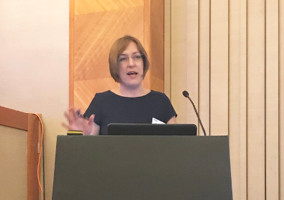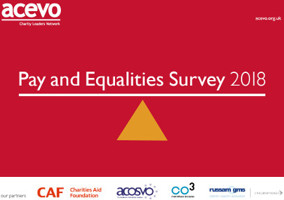Charity chief executives are most concerned about diversity on their boards, regulation of the sector and workload, according to Acevo's latest annual survey.
Only 26 per cent of chief executives are satisfied with the ethnic diversity of their boards, though 76 per cent are satisfied with the gender diversity, the research has revealed.
Despite this, only 32 per cent have any concrete plans to address ethnic diversity issues and only 34 per cent have strategies in place to recruit more candidates with disabilities.
The gender pay gap for chief executives is, on average, 13.8 per cent.
The results come from Acevo's Annual Pay and Equalities Survey, in which 528 chief executives responded to a number of questions about issues spanning pay, diversity, and workload.
Regulation
The survey also found that only 17 per cent of respondents believe that charity sector regulation is "very effective", though 70 per cent believe it is fairly effective. This is similar to last year’s findings. The report said: “Little has shifted to improve the perceived effectiveness of regulation in the last year.”
Workload
Meanwhile, the survey found that chief executives work on average 10 hours extra a week over and above their contracted hours, amounting to some extra three months a year, unpaid. It also found that average salaries are falling, from £60,000 in 2013 to £52,000 in 2018.
Vicky Browning, chief executive of Acevo, said: "Most CEOs in our sector see leading their organisations as a privilege. Long hours are often accepted as a symptom of limited resources facing unlimited demand. But working an extra one and a half days over the standard five can seriously impact wellbeing and even lead to burnout. Trustees need to take seriously their duty of care to chief executives as well as the organisations and beneficiaries they serve."
Recruitment
The survey also found that a fifth of chief executives are promoted from within their own organisations. A further 46 per cent come from other senior third sector roles, and some 9 per cent move into charities from the private sector.
|
Related articles












